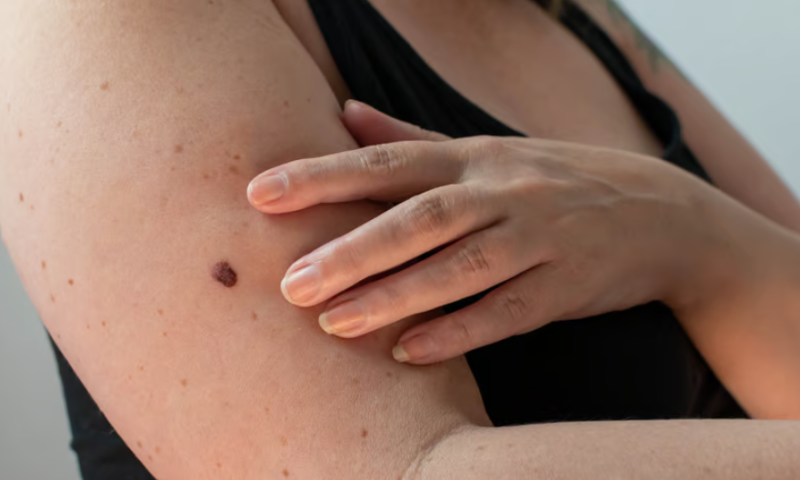The FDA has cleared its first artificial intelligence-powered device that checks out suspicious moles, bumps or lesions for the signs of skin cancer, with a handheld probe developed by DermaSensor.
Designed for use by primary care providers, the noninvasive optical spectroscopy system is capable of helping to identify the three most common skin cancers at the point of care, including melanoma, basal cell carcinoma and squamous cell carcinoma.
The FDA said its de novo clearance aims the automated device toward people ages 40 and up. While not a screening tool or a complete diagnostic by itself, the DermaSensor can be used by physicians to help decide whether to refer a patient to a trained dermatologist: After scanning, the point-and-click AI system immediately delivers results stating either “investigate further” or “monitor.”
“We are entering the golden age of predictive and generative artificial intelligence in healthcare, and these capabilities are being paired with novel types of technology, like spectroscopy and genetic sequencing, to optimize disease detection and care,” DermaSensor co-founder and CEO Cody Simmons said in a statement. “Equipping PCPs, the most abundant clinicians in the country, to better evaluate the most common cancer in the country has been a major, long-standing unmet need in medicine.”
The Miami-based company estimates that one in five people in the U.S. will have had some type of skin cancer by age 70, resulting in about 5.5 million new cases each year and annual treatment costs north of $8 billion. However, nearly all skin cancers can be treatable if detected early.
“Achieving this medical milestone is a testament to the 12 years and tens of millions of dollars our company has invested in research and development to bring this powerful technology to market,” said DermaSensor’s co-founder and chairman, Maurice Ferre. The device previously received a breakthrough designation from the FDA, as well as a CE mark approval in Europe.
In a clinical trial of more than 1,000 people led by the Mayo Clinic, the DermaSensor demonstrated a sensitivity of 96%. A separate study showed the device could help decrease the number of missed cancer cases by half—from 18% in typical practice and naked-eye observations down to 9% using the scanner’s ability to analyze a lesion’s cellular characteristics.
A separate sub-analysis of a blinded trial found the DermaSensor delivered similarly accurate results across a range of patient skin tones, according to the company.

